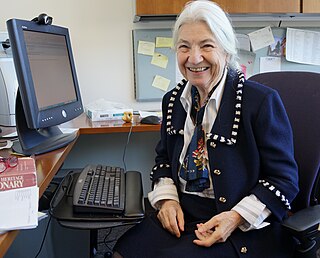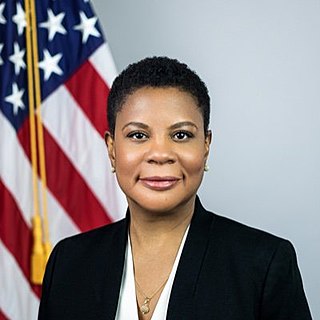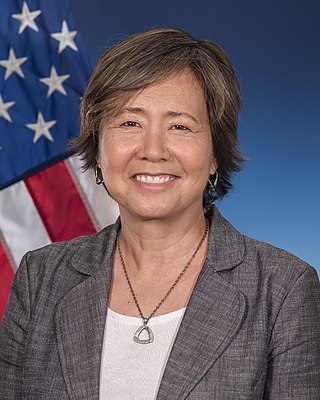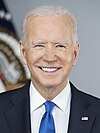
SRI International (SRI) is an American nonprofit scientific research institute and organization headquartered in Menlo Park, California. The trustees of Stanford University established SRI in 1946 as a center of innovation to support economic development in the region.
Anthony J. Tether served as Director of the Defense Advanced Research Projects Agency (DARPA) from June 18, 2001, until February 20, 2009. As Director, Dr. Tether was responsible for management of the Agency's projects for high-payoff, innovative research and development. In 2020, he became a consultant with MISTRAS Group, USA.

David A. Bader is a Distinguished Professor and Director of the Institute for Data Science at the New Jersey Institute of Technology. Previously, he served as the Chair of the Georgia Institute of Technology School of Computational Science & Engineering, where he was also a founding professor, and the executive director of High-Performance Computing at the Georgia Tech College of Computing. In 2007, he was named the first director of the Sony Toshiba IBM Center of Competence for the Cell Processor at Georgia Tech.

Arden Lee Bement Jr. is an American engineer and scientist and has served in executive positions in government, industry and academia.

The Office of Science and Technology Policy (OSTP) is a department of the United States government, part of the Executive Office of the President (EOP), established by United States Congress on May 11, 1976, with a broad mandate to advise the President on the effects of science and technology on domestic and international affairs.

The President's Council of Advisors on Science and Technology (PCAST) is a council, chartered in each administration with a broad mandate to advise the president of the United States on science and technology. The current PCAST was established by Executive Order 13226 on September 30, 2001, by George W. Bush, was re-chartered by Barack Obama's April 21, 2010, Executive Order 13539, by Donald Trump's October 22, 2019, Executive Order 13895, and by Joe Biden's February 1, 2021, Executive Order 14007.

William A. Jeffrey is the CEO of SRI International, a position he has held since September 2014. He is an astronomer and astrophysicist by education.
The Science Advisor to the President is an individual charged with providing advisory opinions and analysis on science and technology matters to the President of the United States. The first Science Advisor, Vannevar Bush, chairman of the Office of Scientific Research and Development, served Presidents Franklin Delano Roosevelt and Harry S. Truman from 1941 to 1951. President Truman created the President's Science Advisory Committee in 1951, establishing the chairman of this committee as the President's Science Advisor. This committee continued under Presidents Dwight D. Eisenhower, John F. Kennedy, Lyndon B. Johnson, and Richard M. Nixon until 1973. Nixon terminated the committee rather than appointing a replacement for his advisor who had resigned. The US Congress established the Office of Science and Technology Policy in 1976, re-establishing Presidential Science Advisors to the present day.

The National Science and Technology Council (NSTC) is a council in the Executive Branch of the United States. It is designed to coordinate science and technology policy across the branches of federal government.

George Harry Heilmeier was an American engineer, manager, and a pioneering contributor to liquid crystal displays (LCDs), for which he was inducted into the National Inventors Hall of Fame. Heilmeier's work is an IEEE Milestone.

Annie Antón is an academic and researcher in the fields of computer science, mathematical logic, and bioinformatics.

Ruzena Bajcsy is an American engineer and computer scientist who specializes in robotics. She is professor of electrical engineering and computer sciences at the University of California, Berkeley, where she is also director emerita of CITRIS.

Stephen Edward Cross is the executive vice president for research (EVPR) at the Georgia Institute of Technology (Georgia Tech), a position to which he was appointed in 2010. As EVPR, Cross coordinates research efforts among Georgia Tech's colleges, research units and faculty; and provides central administration for all research, economic development and related support units at Georgia Tech. This includes direct oversight of Georgia Tech's interdisciplinary research institutes, the Georgia Tech Research Institute (GTRI), the Enterprise Innovation Institute (EI2) and the Georgia Tech Research Corporation (GTRC).

Alondra Nelson is an American academic, policy advisor, non-profit administrator, and writer. She is the Harold F. Linder chair and professor in the School of Social Science at the Institute for Advanced Study, an independent research center in Princeton, New Jersey. From 2021 to 2023, Nelson was deputy assistant to President Joe Biden and principal deputy director for science and society of the White House Office of Science and Technology Policy (OSTP), where she performed the duties of the director from February to October 2022. She was the first African American and first woman of color to lead OSTP. Prior to her role in the Biden Administration, she served for four years as president and CEO of the Social Science Research Council, an independent, nonpartisan international nonprofit organization. Nelson was previously professor of sociology at Columbia University, where she served as the inaugural Dean of Social Science, as well as director of the Institute for Research on Women and Gender. She began her academic career on the faculty of Yale University.

William S. "Bill" Mark is a vice president at SRI International, where he has been in charge of their Information and Computing Sciences Division since 1998.
The Microsystems Technology Office (MTO) is one of seven current organizational divisions of DARPA, an agency responsible for the development of new technology for the United States Armed Forces. It is sometimes referred to as the Microelectronics Technology Office.
Gazebo is an open-source 2D/3D robotics simulator that began development in 2002. In 2017, development forked into two versions, known as "Gazebo", the original monolithic architecture, and "Ignition", which had moved to becoming a modernized collection of loosely coupled libraries. Following a trademark obstacle in 2022 regarding their use of the name "Ignition", Open Robotics took the opportunity to switch the version names, dubbing the original fork "Gazebo Classic" and the new, modern fork "Gazebo".

Stefanie Tompkins is an American geologist. She is the director of the Defense Advanced Research Projects Agency (DARPA).
The Advanced Research Projects Agency for Health (ARPA-H) is an independent entity within the National Institutes of Health. Its mission is to "make pivotal investments in break-through technologies and broadly applicable platforms, capabilities, resources, and solutions that have the potential to transform important areas of medicine and health for the benefit of all patients and that cannot readily be accomplished through traditional research or commercial activity."
Executive Order 14110, titled Executive Order on Safe, Secure, and Trustworthy Development and Use of Artificial Intelligence is the 126th executive order signed by U.S. President Joe Biden. Signed on October 30, 2023, the order defines the administration's policy goals regarding artificial intelligence (AI), and orders executive agencies to take actions pursuant to these goals. The order is considered to be the most comprehensive piece of governance by the United States regarding AI.















